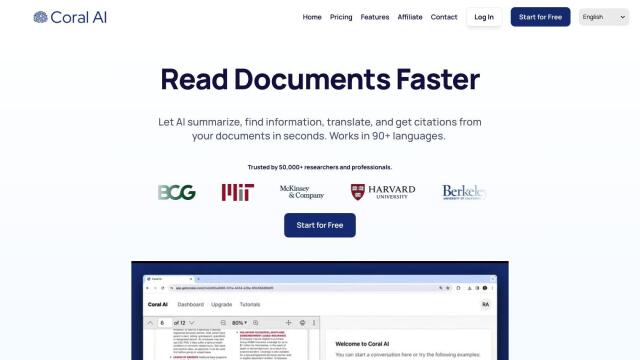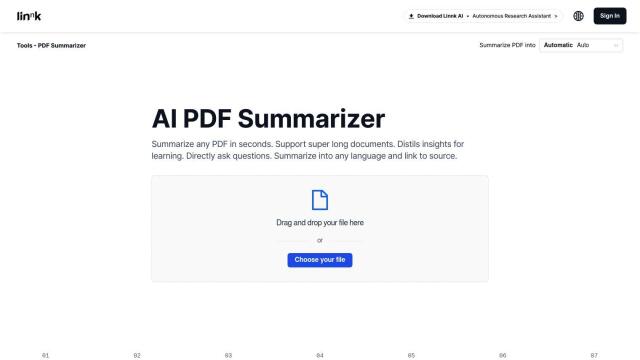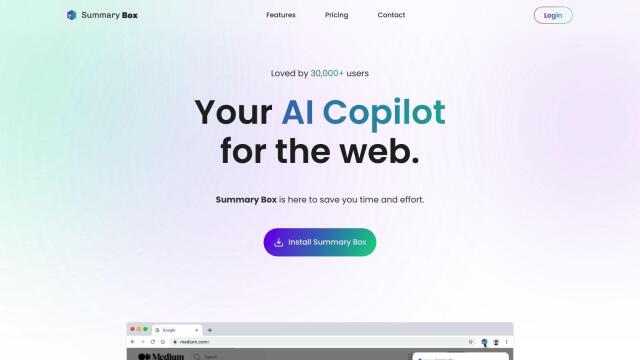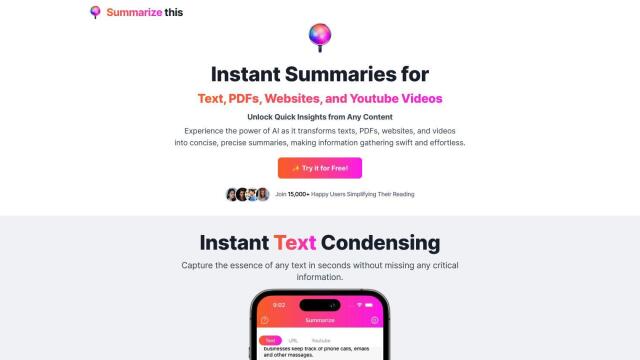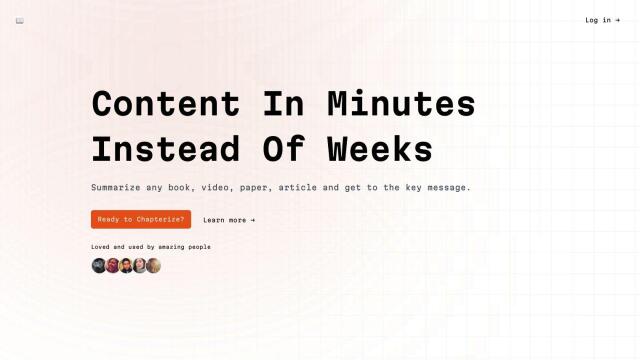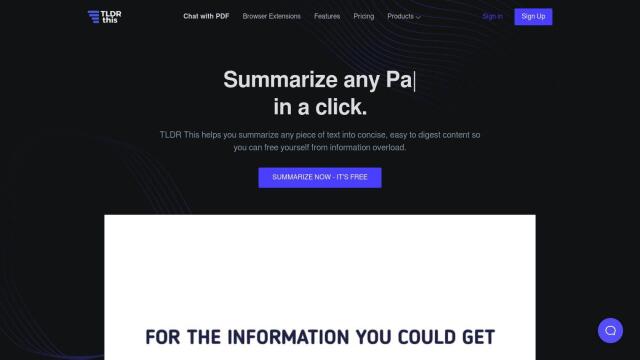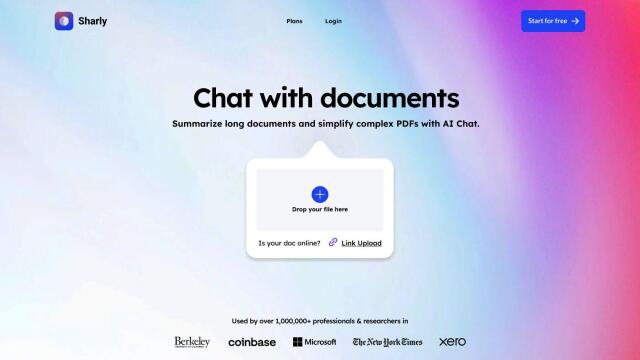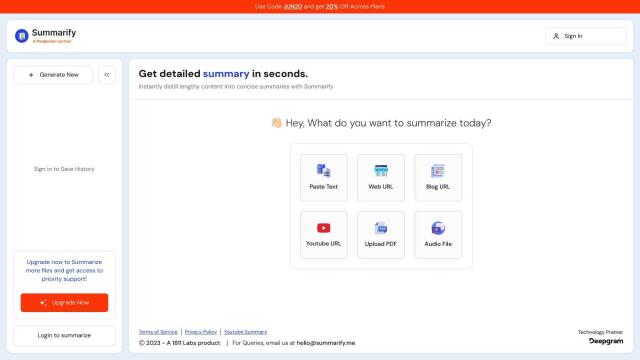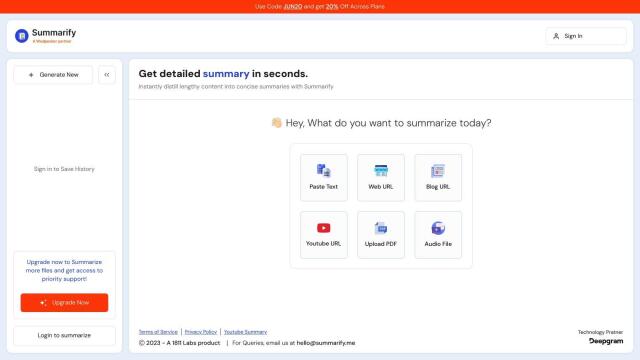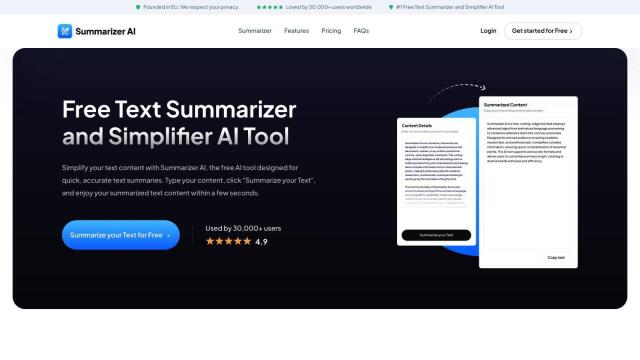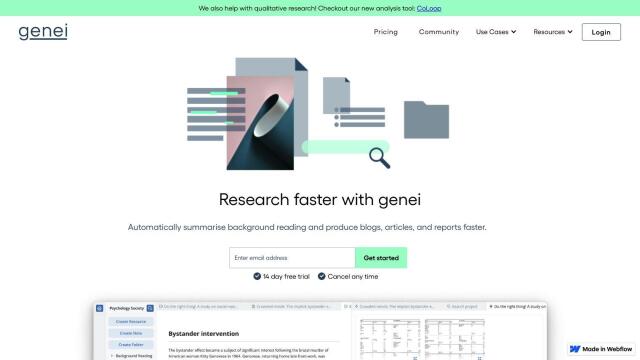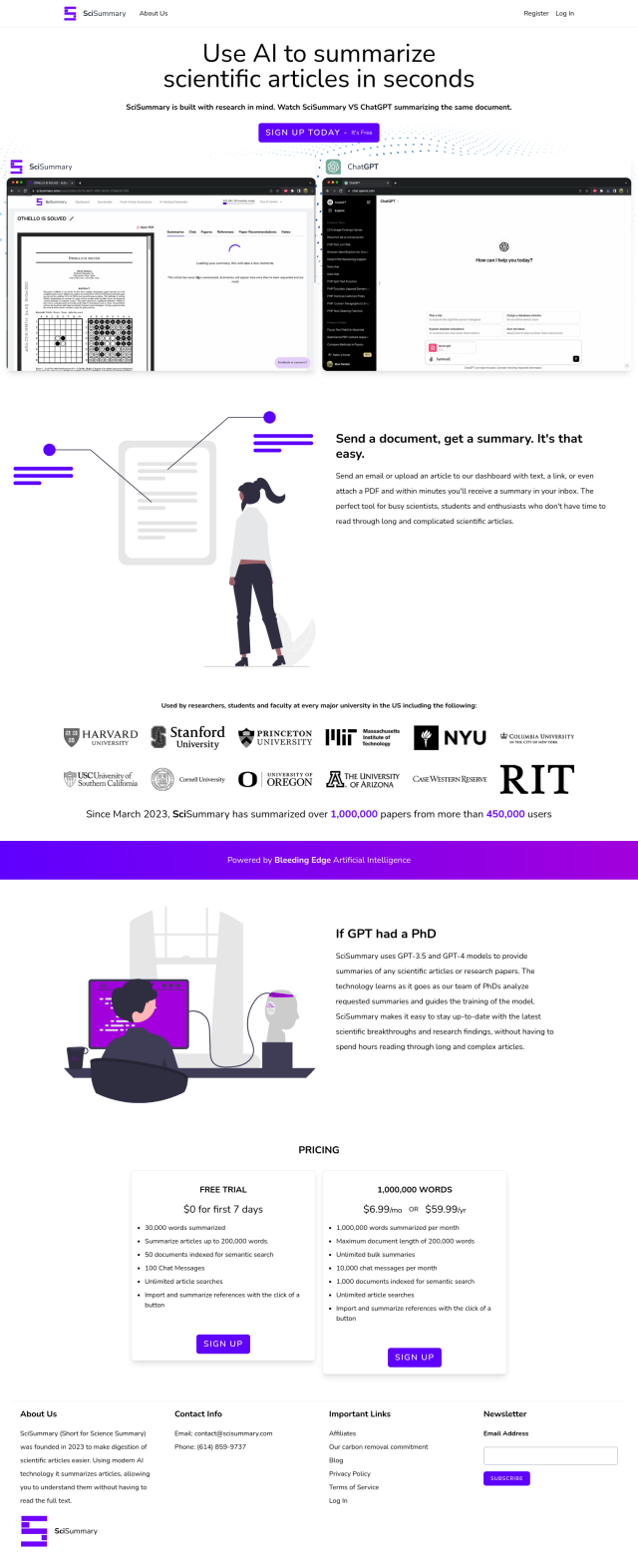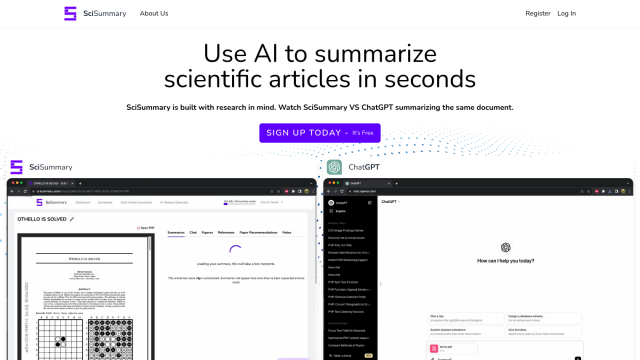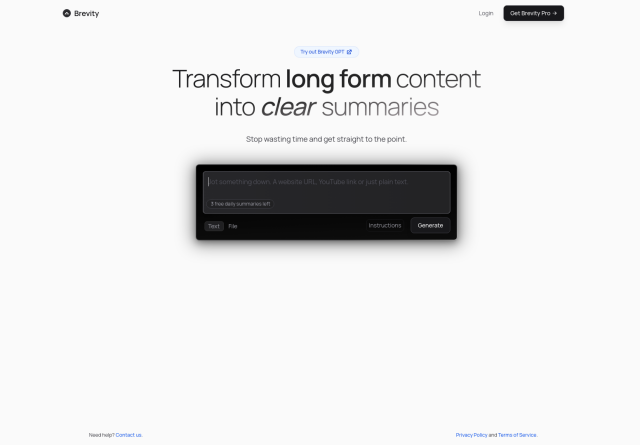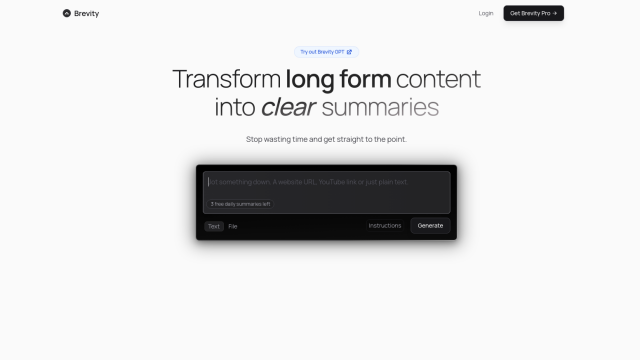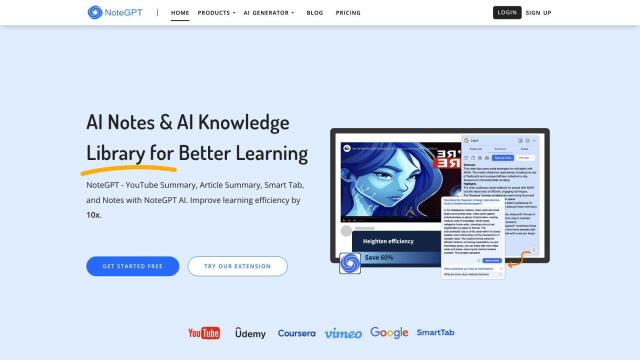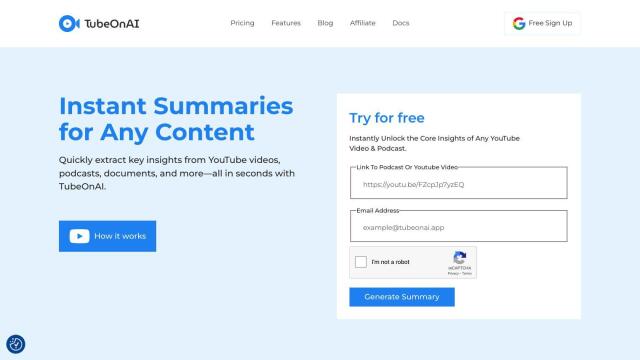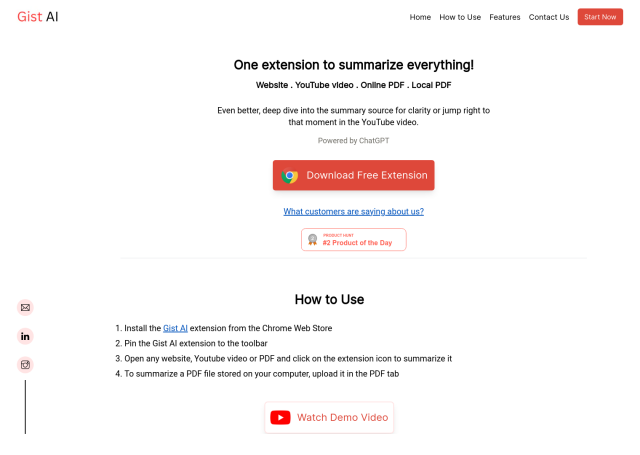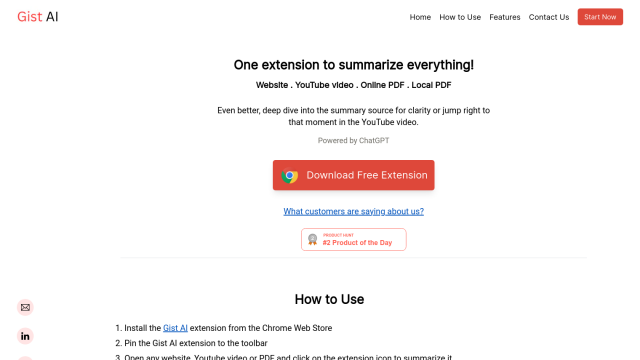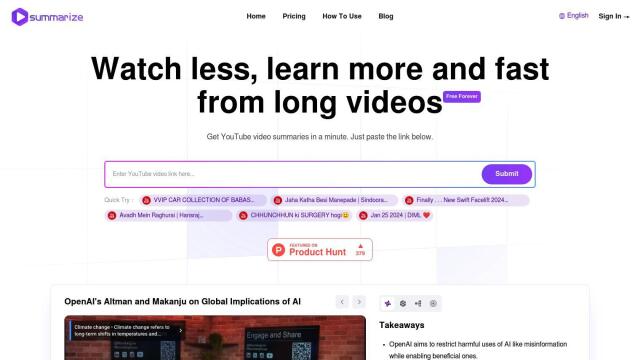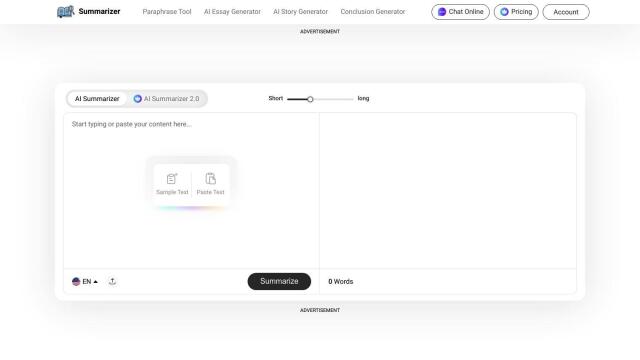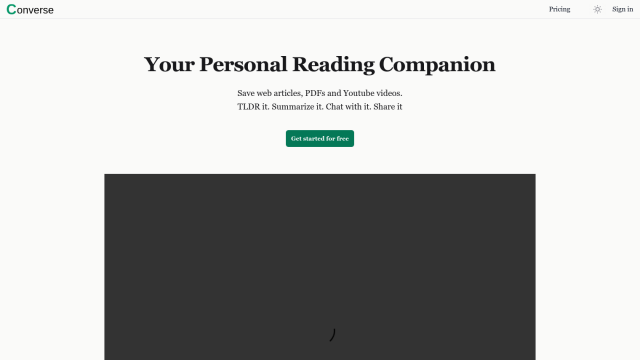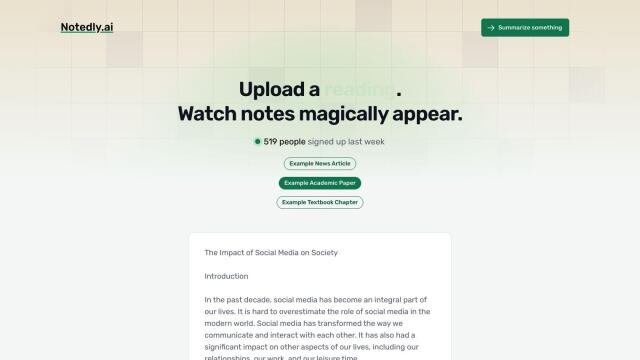Question: I'm looking for an AI-powered solution that can summarize long content into concise summaries.

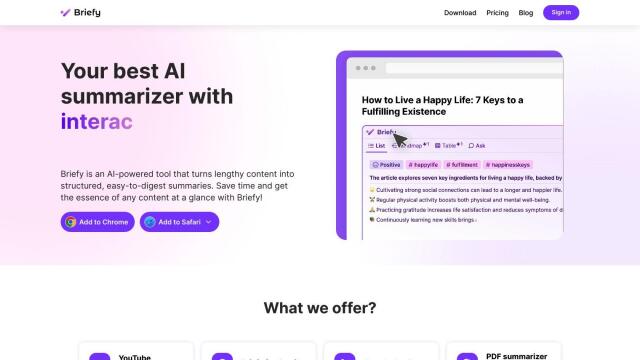
Briefy
If you want an AI-based tool to summarize long documents into a digestible summary, Briefy is worth a look. Briefy converts long documents into structured summaries in a variety of formats, including short paragraphs, detailed items, mindmaps and tables. It works in multiple languages, lets you interact with content with contextually aware answers, and is available as a Chrome, Safari and Gmail extension. The tool is designed to help you work more efficiently and engage more with web content.

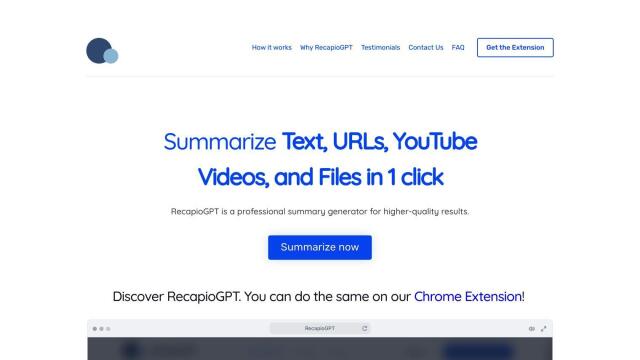
RecapioGPT
Another tool worth a look is RecapioGPT. This AI-based summarization tool can summarize a variety of content formats, including articles, PDFs and YouTube videos. RecapioGPT is available as a Chrome extension or web app, works in multiple languages and lets you edit summaries. It also integrates with Instapaper and has customization options, making it a good option for students, researchers and professionals who need to quickly and accurately summarize documents.

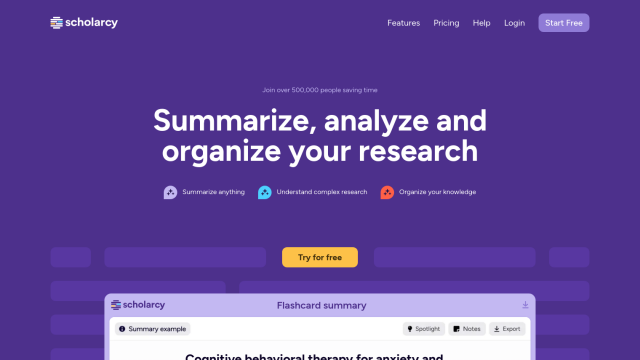
Scholarcy
If you're looking for a tool that's geared specifically for academic papers, Scholarcy is a good option. Scholarcy converts dense documents into interactive summary flashcards and can summarize, analyze and synthesize documents. It can handle a variety of file formats and comes with features like note-taking, highlighting and generating bibliographies. It's good for students and researchers who want to work more efficiently and better understand complex information.

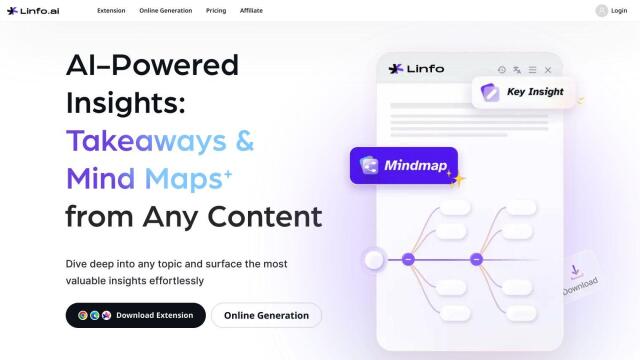
Linfo
Last, Linfo offers an AI-based information retrieval system that can extract key points from long documents, including articles and YouTube videos. It can provide structured summaries with a hierarchy of main points and subheadings, and can convert webpage content into downloadable mind maps. Linfo is good for professionals who need to quickly digest information, and it offers a range of pricing plans including a free basic plan and Pro plans with more features.

